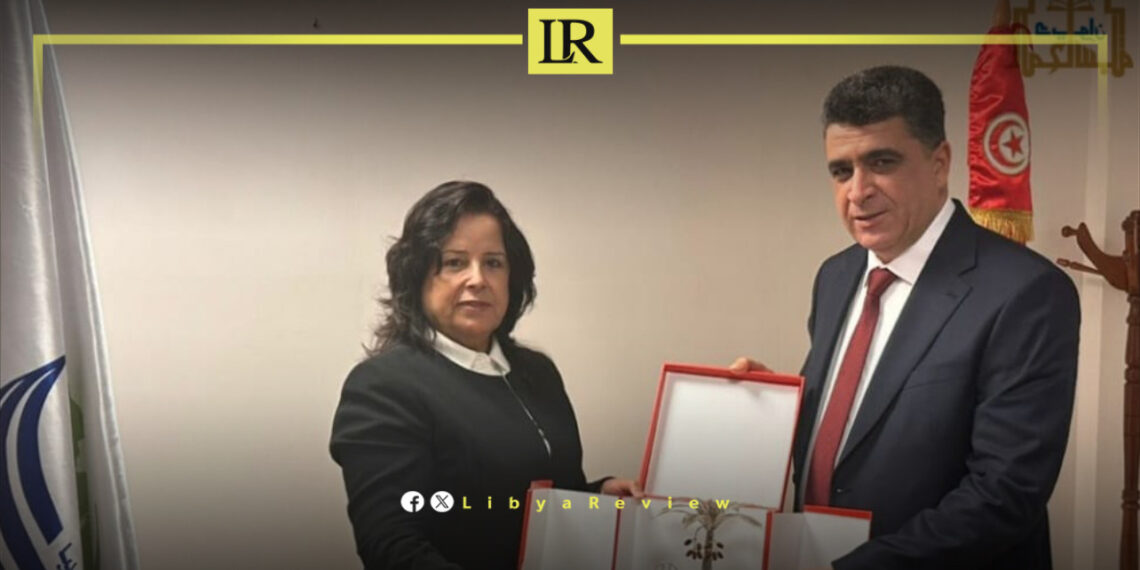Khaled Shakshak, the President of Libya’s Audit Bureau, met on Friday with Fazila Qarqouri, the President of Tunisia’s Court of Accounts, to discuss ways to activate the Memorandum of Understanding and the Maghreb Coordination Committee.
During the meeting, Shakshak presented a copy of the scientific curricula for the Certified Professional Auditor certificate, which the Audit Bureau developed in collaboration with the Arab Society of Certified Accountants.
The visit also focused on preparations for the upcoming 16th General Assembly meetings of the African Organization of Supreme Audit Institutions (AFROSAI), which will be held in Tripoli in early December.
These discussions are seen as part of broader efforts to strengthen regional cooperation in financial oversight and auditing, while the AFROSAI meeting is expected to bring together audit leaders from across the continent to discuss best practices in financial accountability.
Libya has been in chaos since a NATO-backed uprising toppled longtime leader Muammar Gaddafi in 2011. The county has for years been split between rival administrations.
Libya’s economy, heavily reliant on oil, has suffered due to the ongoing conflict. The instability has led to fluctuations in oil production and prices, impacting the global oil market and Libya’s economy.
The conflict has led to a significant humanitarian crisis in Libya, with thousands of people killed, and many more displaced. Migrants and refugees using Libya as a transit point to Europe have also faced dire conditions.
The planned elections for December 2021 were delayed due to disagreements over election laws and the eligibility of certain candidates. This delay has raised concerns about the feasibility of a peaceful political transition.
Despite the ceasefire, security remains a significant concern with sporadic fighting and the presence of mercenaries and foreign fighters. The unification of the military and the removal of foreign forces are crucial challenges.


